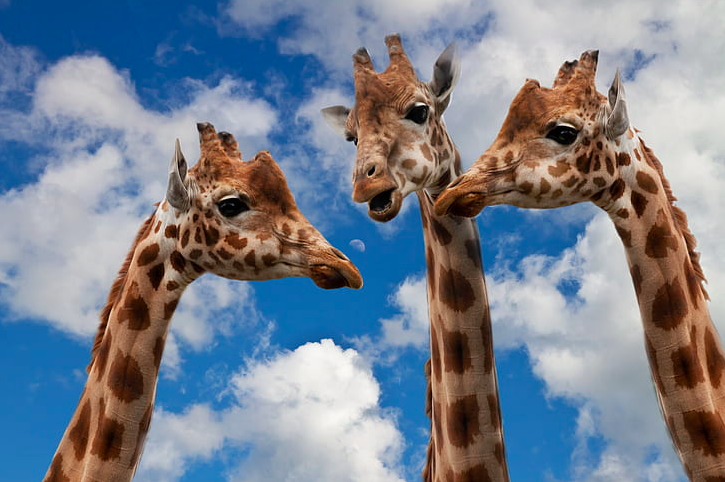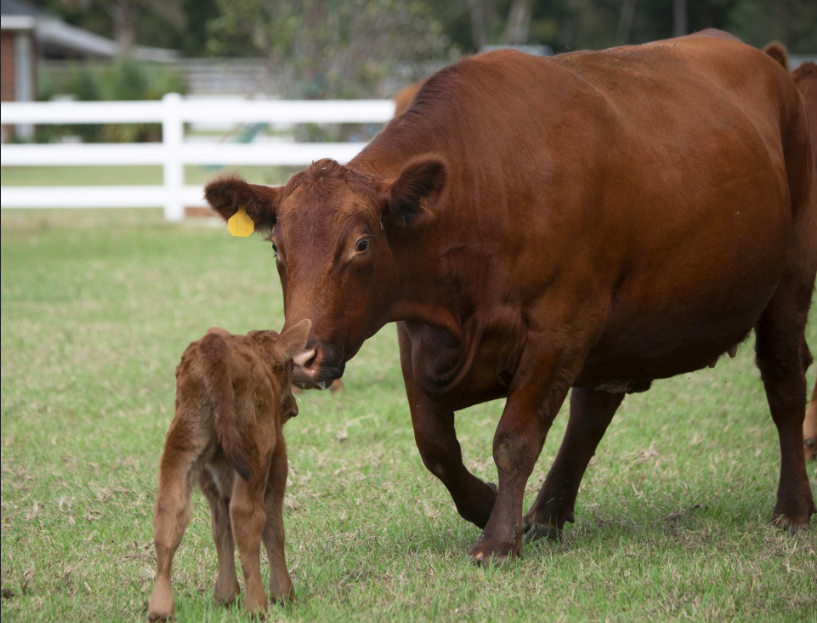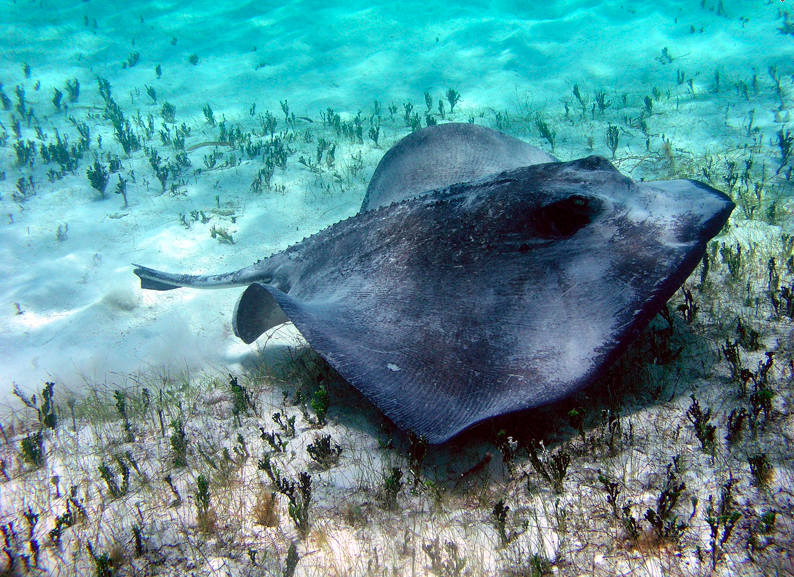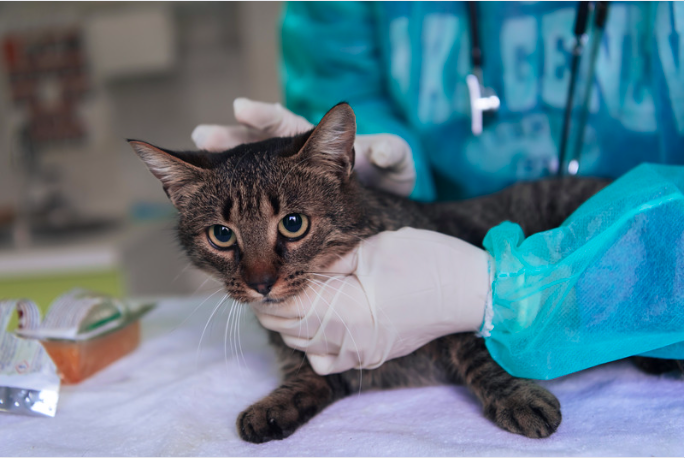Animals
Are There Animals Having Down Syndrome?

Are There Animals Having Down Syndrome?
Is Down syndrome a condition in humans? Or are there other animals with this disorder? Is it possible that we have genetically altered mice? This article addresses these questions. It was originally published on March 24, 2021.
Since then, many more animals have been genetically modified. We are unsure whether our pets can be genetically altered to have Down syndrome. But if they do, how do we know for sure?
Dogs
Canines can have Down syndrome, too. This genetic condition is more common than you might think, affecting one in 700 American dogs.
While dogs do not exhibit physical characteristics that are indicative of this disorder, some of the symptoms are similar. A dog with this condition would be small, have a flat face, have small ears, and may have tiny white spots on the colored part of its eye.
Moreover, their hands will be smaller than normal, and they may have poor muscle tone. A dog with Down syndrome may be misbehaving. It may have problems with its eyesight, hearing, or other senses.
It may have trouble following commands or maybe have cataracts. It may also have blood in its stool. If you suspect your dog may be suffering from this condition, you should seek professional help right away.
Your dog may be suffering from some of the same symptoms as you do, but the symptoms can vary greatly. Symptoms of Down syndrome in dogs may include a flattened face, warm nose, and abnormal ear shape.
Other symptoms of Down syndrome may include hair loss, deformed legs, and abnormal skin patches. Some dogs have short lifespans compared to healthy dogs. If you suspect your dog has this genetic disorder, you should consult a vet.
If the symptoms or signs are severe, it is best to seek professional help. Dogs with Down syndrome can live for as long as 15 years. In case you are looking for a new pet, you may have just what you’re looking for.
Dogs with Down syndrome can be great companions for family members or friends. It can be a great gift, but it also requires emotional maturity and understanding.
Dogs with Down syndrome are wonderful pets that can teach us valuable lessons about love, attention, and concern. You would surely feel blessed to have a dog with this special trait in your life.
Chimpanzees
In the Japanese chimpanzee Kanako, a 24-year-old female, scientists have confirmed the ailment as Down syndrome.
She was born in Kumamoto Sanctuary and developed abnormal traits from a young age. Her eyesight was also affected, with cataracts developing at age one, and she was blind by age seven. Kanako also had underdeveloped teeth and the third copy of chromosome 22 – a condition known as trisomy 22.
Kanako was diagnosed with trisomy 22 and an atrial septal defect, a hole in the heart wall separating the top two chambers. An echocardiogram confirmed her heart condition. Kanako lives separately from other chimps and interacts with Roman about once a month.
Her interactions with Roman are calm and friendly, and she gets lots of social stimulation. Researchers believe she is the first chimpanzee to have Down syndrome, but their research is ongoing. In the meantime, chimpanzees can have Down syndrome, too.
The animal has an extra chromosome, and its abnormality causes it to experience growth problems, heart problems, and learning disabilities. Researchers aren’t sure why chimpanzees have Down syndrome, but they have several other disorders that mimic its symptoms, including inbreeding and genetic mutations.
Humans have a total of 46 chromosomes, while chimpanzees have 48 pairs. The apes that share human chromosomes have trisomy 22. Trisomy 22 affects chimpanzees as well. People with Down syndrome have an extra copy of chromosome 22.
The first confirmed case of trisomy 22 in a chimpanzee was recorded in 1969. However, it was fatal. The longest-living chimp with trisomy 22 is Kanako.
Genetically Modified Mice
Scientists have been trying to develop genetically modified mice with Down syndrome to study the disease.
Human Down syndrome is a complex genetic disorder that affects the entire chromosome and hundreds of genes. While there have been several genetic mouse models of Down syndrome, none of them closely mimic human Down syndrome.
To achieve a more accurate model of human Down syndrome, researchers from Johns Hopkins Medicine have developed genetically modified mice with Down syndrome. While mice share many similarities with humans, many human diseases do not occur naturally in them.
One such disease is Down syndrome, a rare genetic disorder characterized by distinct facial features and developmental delays. Researchers hope to develop therapies for human Down syndrome using this mouse model. Ultimately, this research could improve the quality of life for people living with this condition.
In the meantime, genetically modified mice may help scientists understand human Down syndrome better. Another new study demonstrates the potential of genetically engineered mice with Down syndrome for human research.
The researchers studied the skull growth of mice with Ts65Dn mutations, which display anatomical features of human Down syndrome. The Ts65Dn mice develop differently from their littermates and remain this way into adulthood.
The researchers emphasize that growth is an iterative process, with genes responsible for developing structures influencing future gene expression. The chromosome-engineered mouse model carries human DNA from the 21q22.2 region of the human chromosome. It displays a wide array of DS-relevant phenotypes.
Although the Ts65Dn mouse shows similar phenotypes to Tg-dyrk1a mice, it lacks a complete characterization of human Down syndrome. Its chromosome is characterized by variable mosaicism in different tissues, which complicates the analysis of phenotypic consequences.
Giraffes
In recent years, Down syndrome animals have taken the internet by storm. In a simple Google search, you would find pages of images, videos, and articles.
While these animals suffer from many physical and mental problems, it’s important to note that they are as adorable and cuddly as their peers. Here are some interesting facts about giraffes with Down syndrome. They share many common characteristics with people with Down syndrome.
Some giraffids may be very tame and, therefore, may not be a significant problem in the animal kingdom. However, they can develop a fear of human contact and manipulation. Some giraffes may even become habituated to humans and be able to accept human touch, such as blood sampling.
In this case, the safest nonchemical method to use is to familiarize the animal with the chute through regular interactions with its owners. In most cases, the animal will be able to tolerate it in the course of normal life, but forced physical restraints will result in insufficient blood samples and may even be dangerous.
Although giraffes are generally healthy, they have some characteristics that make them less than desirable pets. One example is their high mortality rate. They could live up to seven years, but they aren’t likely to produce progeny.
While some giraffes can survive the long winters, their reproductive cycle is still quite erratic. While it’s not a good idea to pet a giraffe, it’s unlikely to affect humans negatively. Because giraffes are so vulnerable, they face an increased risk of extinction in the wild.
According to the report of the International Union for Conservation of Nature, fewer than 80,000 of these species are remaining in the wild, and many subspecies are now considered endangered. There are about 2000 giraffes in captivity. But while there are fewer than a hundred thousand giraffes in the wild, it is still a significant percentage.
Frequently Asked Questions (FAQs)
Can animals have Down syndrome?
No, animals cannot have Down syndrome as it occurs in humans due to an extra copy of chromosome 21. However, animals can have genetic disorders that produce similar symptoms, but they are not classified as Down syndrome.
What causes Down syndrome in humans?
Down syndrome in humans is caused by a genetic anomaly where an individual has an extra full or partial copy of chromosome 21. This condition leads to developmental and intellectual delays.
Are there any animals that show symptoms similar to Down syndrome?
Yes, some animals can exhibit symptoms similar to those of Down syndrome, such as developmental delays, distinctive facial features, and other physical abnormalities. For example, some cats have a condition often referred to as feline Down syndrome, although it’s not the same genetic disorder.
How are genetic disorders in animals diagnosed?
Genetic disorders in animals are diagnosed through veterinary examinations, genetic testing, and observing the animal’s physical and behavioral characteristics. Vets may use specific tests to identify chromosomal abnormalities.
Are there specific animals known for having Down syndrome-like conditions?
Some animals, such as tigers, lions, and certain breeds of dogs, have been reported to show characteristics that might resemble Down syndrome. For instance, Kenny, a white tiger, was often cited as having Down syndrome, although his condition was due to inbreeding and not the same chromosomal anomaly as Down syndrome in humans.
What are some common genetic disorders in animals?
Common genetic disorders in animals include hip dysplasia in dogs, feline cerebellar hypoplasia in cats, and equine polysaccharide storage myopathy in horses. These conditions are genetically inherited but differ from Down syndrome.
How can genetic disorders in animals be managed or treated?
Management and treatment of genetic disorders in animals depend on the specific condition. It often includes medication, special diets, physical therapy, and, in some cases, surgery. Regular veterinary check-ups are crucial for managing these conditions effectively.
Can animals with genetic disorders lead normal lives?
Many animals with genetic disorders can lead fulfilling lives with proper care and management. Their quality of life can be significantly improved with the right medical attention, environmental adjustments, and dedicated care from their owners.
Is there ongoing research into genetic disorders in animals?
Yes, there is ongoing research into genetic disorders in animals. Scientists and veterinarians are continually studying these conditions to better understand their causes, improve diagnostic methods, and develop more effective treatments.
How can pet owners support animals with genetic disorders?
Pet owners can support animals with genetic disorders by providing regular veterinary care, following prescribed treatment plans, ensuring a healthy diet, and creating a comfortable living environment. Emotional support and understanding from the owner also play a significant role in the animal’s well-being.
We appreciate you for taking the time to read!
Finally, we hope you found this article interesting? And what do you think about ”Are There Animals Having Down Syndrome?”
Please you should feel free to share your thoughts with us in the box below.
And let us know if you observe something that isn’t quite right.

Animals
Potential and Challenges of Applying Gene Editing Techniques

Potential and Challenges of Applying Gene Editing Techniques, such as CRISPR-Cas9, in Bovine Embryos Generated by IVF
Author:
CARLOS AUGUSTO DELMINDO FILHO
In vitro embryo production (IVP) has revolutionized cattle reproduction, allowing for the rapid multiplication of genetic material from high-value animals and opening up new possibilities for genetic improvement. Gene editing, with emphasis on the CRISPR-Cas9 technique, emerges as a powerful tool to enhance IVP, enabling precise manipulation of the genome and the introduction of desirable characteristics in animals. Gene editing techniques, such as CRISPR-Cas9, ZFNs, and TALENs, allow for precise modification of DNA at specific locations, representing an advance over homologous recombination techniques, which are inefficient and time-consuming.
However, the application of gene editing in bovine embryos generated by IVF still presents technical challenges, such as low efficiency and the occurrence of mosaicism, in addition to ethical and regulatory considerations that need to be addressed. This article discusses the potential and challenges of gene editing, focusing on the CRISPR-Cas9 technique, in bovine embryos produced by IVF, aiming to develop strategies to overcome barriers and ensure the safe and responsible application of this promising technology.
Potential of Gene Editing in Bovine Embryos
CRISPR-Cas9 gene editing allows for precise manipulation of the genome, opening up a range of possibilities for genetic improvement in cattle. The technique can be used for:
- Correction of disease-causing genes: Recessive genetic diseases, such as Bovine Leukocyte Adhesion Deficiency (BLAD), can be corrected in embryos, eliminating the transmission of the disease to future generations.
- Insertion of beneficial traits: The introduction of genes of interest, such as disease resistance or production traits, can accelerate the genetic improvement process, resulting in healthier and more productive animals.
- Creation of models for research: Gene editing allows for the creation of animal models to study human diseases and develop new therapies.
Challenges of Gene Editing in Bovine Embryos
Despite the potential, gene editing in bovine embryos still faces challenges:
- Efficiency of editing: The success rate of gene editing in embryos is still relatively low, with the frequent occurrence of mosaicism (different genotypes in the same individual).
- Editing specificity: The technique can generate unintentional mutations in other parts of the genome, with possible undesired effects.
- Generation of viable animals: Gene editing can affect embryonic development and the viability of the generated animals.
- Ethical and regulatory aspects: The application of gene editing in animals raises ethical questions about animal welfare and food safety, in addition to demanding a clear and consistent regulatory framework.
Strategies to Overcome Challenges
To overcome the challenges of gene editing in bovine embryos, several strategies are being explored:
- Optimization of editing protocols: Optimization of gene editing protocols, such as the use of different CRISPR-Cas9 systems and choosing the ideal time for editing, can increase the efficiency and specificity of the technique.
- Selection of edited embryos: The combination of gene editing with genomic selection of embryos (GSE) allows the identification and selection of embryos with the desired editing and high genetic merit, increasing the efficiency of the process.
- Improvement of embryo transfer techniques: The development of more efficient embryo transfer techniques can increase the success rate in generating viable animals from edited embryos.
- Ethical discussion and development of regulations: Ethical debate and the development of clear and consistent regulations are fundamental to ensure the responsible and safe application of gene editing in animals.
Conclusion
CRISPR-Cas9 gene editing represents a powerful tool for the advancement of animal production and food security, as long as it is used responsibly and ethically. The combination of gene editing with other biotechnologies, such as genomic selection, can accelerate the development of solutions for livestock challenges, such as diseases, low productivity, and adaptation to climate change. However, it is crucial that the scientific community and society engage in a constant dialogue to ensure that the application of gene editing is safe, transparent, and benefits both producers and consumers.
Gene editing, especially with the CRISPR-Cas9 technique, has enormous potential to revolutionize in vitro embryo production (IVP) and genetic improvement of cattle, opening doors to a promising future in livestock. By enabling precise manipulation of the genome, this technology allows the correction of disease-causing genes, the insertion of beneficial traits, and the creation of models for research in cattle. Overcoming technical challenges, such as increasing the efficiency and specificity of editing, along with the combination with other biotechnologies, such as genomic selection of embryos, has the potential to accelerate genetic improvement and boost IVP, resulting in healthier, more productive, and better-adapted animals to market needs.
However, the application of gene editing in bovine embryos also raises important ethical and regulatory questions. It is essential that the scientific community, together with regulatory bodies and society, establish an open and transparent dialogue to discuss the possible impacts of this technology and ensure its responsible and safe application. Additionally, the development of a clear and consistent regulatory framework is essential to ensure food safety, animal welfare, and consumer confidence in products derived from gene editing.
Author:
CARLOS AUGUSTO DELMINDO FILHO is a veterinarian with extensive experience in bovine reproduction, specializing in various reproductive biotechnologies such as OPU, AI, and embryo transfer. He has worked on dairy and beef cattle farms, focusing on optimizing results and researching new technologies. Currently, he serves as an OPU specialist, performing follicular evaluation and aspiration in donors. He holds a degree in veterinary medicine and has completed specialization courses in bovine reproduction, surgery, and technical responsibility. Additionally, he has volunteered in underserved communities and participated in academic leagues.
Referências
- Mueller, M. L., & Van Eenennaam, A. L. (2022). Synergistic power of genomic selection, assisted reproductive technologies, and gene editing to drive genetic improvement of cattle. CABI Agriculture and Bioscience, 3(1), 13.
- Bogliotti, Y. S., Wu, J., Vilarino, M., Okamura, D., Soto, D. A., Zhong, C., & Ross, P. J. (2018). Efficient derivation of stable primed pluripotent embryonic stem cells from bovine blastocysts. Proceedings of the National Academy of Sciences, 115(9), 2090-2095.
- Hennig, S. L., Owen, J. R., Lin, J. C., Young, A. E., Ross, P. J., Van Eenennaam, A. L., & Murray, J. D. (2020). Evaluation of mutation rates, mosaicism and off-target mutations when injecting Cas9 mRNA or protein for genome editing of bovine embryos. Scientific reports, 10(1), 22309.
We appreciate you for taking the time to read this article!
Finally, we hope you found this article interesting? And what do you think about ”Potential and Challenges of Applying Gene Editing Techniques!?”
Please feel free to share or inform your friends about this article and this site, thanks!
And let us know if you observe something that isn’t quite right.
Animals
The Majestic Komodo Dragon: A Fascinating Creature of the Animal Kingdom

Introduction
Welcome to our blog post dedicated to the awe-inspiring Komodo Dragon! In this article, we will delve into the fascinating world of these magnificent creatures, exploring their unique characteristics, habitat, behavior, and conservation efforts. Join us on this thrilling journey as we uncover the secrets of the world’s largest lizard.
The Komodo Dragon: A Marvel of Evolution
The Komodo Dragon, scientifically known as Varanus komodoensis, is a species of reptile endemic to the Indonesian islands of Komodo, Rinca, Flores, Gili Motang, and Padar. These majestic creatures have captured the imagination of people around the world with their immense size, powerful build, and intriguing features.
With an average length of 8 to 10 feet and weighing up to 200 pounds, the Komodo Dragon holds the title for being the largest lizard on Earth. Their muscular bodies, sharp claws, and serrated teeth make them formidable predators in their natural habitat.
Habitat and Distribution
Komodo Dragons primarily inhabit the dry savannahs and forests of their native islands. Their distribution is limited to a few specific regions, making them a unique and iconic species in the animal kingdom. These reptiles have adapted to a range of environments, from coastal areas to mountainous regions.
Due to their restricted range, Komodo Dragons are considered vulnerable to extinction. Efforts are being made to protect their natural habitats and ensure their long-term survival.
Behavior and Diet
Komodo Dragons are solitary creatures, typically preferring to live alone. They are known for their patience and stealth when hunting, often ambushing unsuspecting prey. These reptiles have a diverse diet that includes deer, wild boar, water buffalo, and smaller reptiles. Their saliva contains a potent mix of bacteria, which aids in the digestion of their prey.
Interestingly, Komodo Dragons have a unique hunting strategy. After capturing their prey, they patiently wait for it to succumb to the bacteria in their saliva, making it easier to consume. This remarkable adaptation showcases the intricate balance of nature.
Conservation Efforts
Due to their limited distribution and vulnerable status, Komodo Dragons are protected by law in Indonesia. National parks, such as Komodo National Park, have been established to safeguard their habitats and promote conservation efforts.
Conservation organizations and local communities are working together to raise awareness about the importance of preserving these magnificent creatures. Education and research initiatives play a crucial role in understanding their behavior, population dynamics, and habitat requirements.
Conclusion
The Komodo Dragon is undoubtedly a marvel of the animal kingdom. Its impressive size, unique hunting techniques, and restricted habitat make it a captivating species to study and admire. As we continue to learn more about these incredible creatures, it is vital that we prioritize their conservation to ensure their survival for generations to come.
Frequently Asked Questions
1. How dangerous are Komodo Dragons?
Komodo Dragons can be dangerous if provoked or threatened. Their powerful bite and bacteria-laden saliva can cause severe infections in their prey. However, they generally avoid human contact and prefer to retreat rather than engage in aggressive behavior.
2. Can Komodo Dragons swim?
Yes, Komodo Dragons are capable swimmers. They can traverse bodies of water, including open sea channels, to reach other islands in search of food or new territories.
3. Are Komodo Dragons endangered?
Komodo Dragons are currently classified as vulnerable by the International Union for Conservation of Nature (IUCN). Their limited distribution and habitat loss pose significant threats to their population. Conservation efforts are crucial to ensure their long-term survival.
4. How long do Komodo Dragons live?
Komodo Dragons have an average lifespan of 30 to 50 years in the wild. In captivity, they can live even longer, with some individuals reaching up to 60 years of age.
5. Can Komodo Dragons fly?
No, Komodo Dragons cannot fly. They are terrestrial reptiles with powerful legs and claws, adapted for a life on land.
Thank you for joining us on this exploration of the magnificent Komodo Dragon. We hope you found this article informative and inspiring. If you have any more questions or would like to share your thoughts, feel free to reach out to us. Until next time, keep exploring the wonders of the animal kingdom!
Animals
The Fascinating World of Komodo Iguanas: A Comprehensive Guide

Introduction
Welcome to our comprehensive guide on Komodo Iguanas, one of the most fascinating reptiles on the planet. In this article, we will delve into the world of these incredible creatures, exploring their habitat, characteristics, behavior, and much more. Whether you are a reptile enthusiast or simply curious about these magnificent creatures, this guide will provide you with all the information you need.
1. The Origins of Komodo Iguanas
Komodo Iguanas, scientifically known as Varanus komodoensis, are native to the Indonesian islands of Komodo, Rinca, Flores, Gili Motang, and Padar. These islands form the Komodo National Park, a UNESCO World Heritage site. The iguanas have adapted to the unique environment of these islands, making them truly remarkable creatures.
1.1 Habitat
Komodo Iguanas inhabit a range of habitats within the Komodo National Park, including dry savannahs, tropical forests, and coastal areas. Their ability to thrive in diverse environments is a testament to their resilience and adaptability.
1.2 Physical Characteristics
These impressive reptiles can grow up to 10 feet in length and weigh over 150 pounds, making them the largest lizards in the world. They have strong limbs, sharp claws, and a muscular tail, which they use for defense and balance. Their scaly skin provides protection from the harsh elements of their environment.
2. Behavior and Diet
Komodo Iguanas are primarily solitary creatures, although they may congregate in areas with abundant food sources. They are excellent climbers and swimmers, allowing them to explore their surroundings with ease. Their diet consists mainly of small mammals, birds, and carrion, and they have been known to exhibit opportunistic feeding behavior.
2.1 Hunting Techniques
When hunting, Komodo Iguanas rely on their keen sense of smell and excellent eyesight. They patiently wait for their prey, then ambush it with a swift and powerful bite. Their saliva contains a mix of bacteria that can cause a lethal infection in their prey, ensuring a successful hunt.
2.2 Reproduction
During the breeding season, male Komodo Iguanas engage in fierce battles to establish dominance and win the right to mate with females. Females lay their eggs in burrows, where they are left to incubate for several months. Once hatched, the young iguanas must fend for themselves, facing numerous challenges in their early stages of life.
3. Conservation Efforts
Due to their limited habitat and the threats they face, Komodo Iguanas are classified as vulnerable by the International Union for Conservation of Nature (IUCN). Human activities, such as habitat destruction and illegal poaching, pose significant risks to their survival. Efforts are underway to protect their natural habitat and raise awareness about the importance of conservation.
Conclusion
Komodo Iguanas are truly remarkable creatures that captivate the imagination of reptile enthusiasts worldwide. Their unique habitat, impressive physical characteristics, and fascinating behavior make them a subject of great interest and study. By understanding and appreciating these incredible reptiles, we can contribute to their conservation and ensure their survival for generations to come.
Frequently Asked Questions
1. Are Komodo Iguanas dangerous?
Komodo Iguanas are not considered dangerous to humans unless provoked. They are generally shy and prefer to avoid human contact.
2. Can Komodo Iguanas be kept as pets?
Due to their size and specific habitat requirements, Komodo Iguanas are not suitable as pets. They require specialized care and a large, naturalistic enclosure.
3. How long do Komodo Iguanas live?
Komodo Iguanas have an average lifespan of 20 to 30 years in the wild. In captivity, with proper care, they can live even longer.
4. Are Komodo Iguanas endangered?
Komodo Iguanas are classified as vulnerable, meaning they are at risk of extinction in the wild. Conservation efforts are crucial to their survival.
5. What is the difference between a Komodo Iguana and a regular iguana?
Komodo Iguanas are a distinct species known for their large size and unique habitat. Regular iguanas refer to various species within the Iguanidae family, which can differ in size, habitat, and behavior.
By providing this comprehensive guide on Komodo Iguanas, we aim to promote awareness and appreciation for these incredible reptiles. Through conservation efforts and responsible stewardship of their natural habitat, we can ensure the continued existence of these magnificent creatures for future generations to admire.
-

 Pet Care2 years ago
Pet Care2 years agoThe Best Dog Collars For 2022
-

 Dogs2 years ago
Dogs2 years agoBichon Frise: The Happy, Playful, and Cuddly Companion
-

 Trending Pet Stories1 year ago
Trending Pet Stories1 year ago2023 ‘World’s Ugliest Dog’ Winner: Scooter’s Tale of Resilience
-

 Pets2 years ago
Pets2 years agoThe Fascinating World Of The Red Chameleon
-

 Dogs2 years ago
Dogs2 years agoTop 10 Most Popular Dog Breeds According To AKC.
-

 Dogs2 years ago
Dogs2 years ago21 Dog Breeds That Resemble Bears Or Teddy Bears!
-

 Dogs2 years ago
Dogs2 years agoEskimo Dogs from Canada – What Are They? – Find Out!
-

 Dogs2 years ago
Dogs2 years agoChow Chow Panda Dogs Breed, What Kind Of Dogs Are Panda Dogs? Check Them Out!













